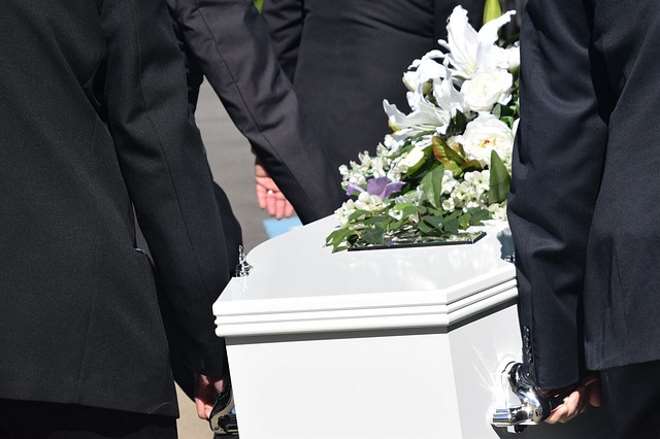What You Need to Know About the Cremation Process
When facing the loss of a loved one, understanding the cremation process can provide comfort and clarity during a difficult time. Cremation has become an increasingly popular choice worldwide, yet many people remain uncertain about what actually happens during this process. This comprehensive guide will walk you through the essential steps, address common misconceptions, and reveal important details that can help you make informed decisions about cremation services.

What Are the Essential Steps in the Cremation Process?
The cremation process follows a carefully regulated sequence designed to ensure dignity and respect. First, proper identification and authorization must be obtained from next of kin or designated representatives. The deceased is then prepared, which includes removing medical devices like pacemakers that could pose safety risks during cremation.
The body is placed in a cremation container or casket suitable for the process. The cremation chamber, called a retort, is preheated to temperatures between 1400-1800 degrees Fahrenheit. The entire process typically takes 2-3 hours, depending on the size of the individual. Following cremation, the remains are processed into fine particles and placed in a temporary container or the urn selected by the family.
How Long Does the Complete Cremation Timeline Take?
Many families want to understand the complete timeline from authorization to receiving the cremated remains. The entire process typically spans 3-10 business days, though this can vary based on local regulations and circumstances.
The actual cremation procedure takes 2-3 hours, but additional time is required for cooling, processing the remains, and completing necessary paperwork. Some jurisdictions require a mandatory waiting period before cremation can occur, which may extend the overall timeline. Express services are sometimes available for families needing expedited processing.
What Common Misconceptions Exist About Cremation?
Several myths persist about cremation that can cause unnecessary concern for families. One widespread misconception is that bodies are cremated in groups - in reality, only one body is cremated at a time, with strict identification protocols maintained throughout.
Another common myth suggests that cremated remains are just ash. The truth is that cremated remains consist primarily of bone fragments that are processed into a coarse powder. Some people also believe cremation is not environmentally friendly, but modern crematories use advanced filtration systems and energy-efficient equipment to minimize environmental impact.
Are There Legal Requirements and Documentation Needed?
Cremation involves specific legal requirements that vary by location but generally include similar fundamental elements. A death certificate must be issued by a physician or medical examiner, and cremation authorization forms must be completed by legally authorized individuals.
Many jurisdictions require a waiting period, typically 24-48 hours, before cremation can proceed. Some areas mandate that a medical examiner review cases involving unexpected deaths. Families should also be aware that certain religious or cultural considerations may influence timing and procedures, which funeral directors can help navigate.
What Unique Cremation Practices Exist Around the World?
Different cultures and regions have developed distinctive cremation traditions that reflect local customs and beliefs. In Bali, Indonesia, elaborate Ngaben ceremonies combine cremation with colorful processions and ornate cremation towers. Hindu traditions in India often include scattering ashes in sacred rivers like the Ganges.
Some Scandinavian countries have introduced eco-friendly alternatives like aquamation, which uses water and alkali instead of flame. Japan has developed sophisticated cremation facilities with family viewing areas and memorial gardens. These diverse practices demonstrate how cremation adapts to various cultural contexts while maintaining its fundamental purpose.
What Are Typical Cremation Costs and Service Options?
Understanding cremation costs helps families make informed financial decisions during challenging times. Basic direct cremation services typically range from $500-$3,000, while full-service cremation with memorial services can cost $2,000-$8,000 or more.
| Service Type | Price Range | Included Services |
|---|---|---|
| Direct Cremation | $500-$3,000 | Basic cremation, temporary container |
| Cremation with Memorial | $2,000-$5,000 | Cremation, memorial service, basic urn |
| Full Service with Viewing | $3,000-$8,000 | All services, viewing, ceremony, upgraded options |
Prices, rates, or cost estimates mentioned in this article are based on the latest available information but may change over time. Independent research is advised before making financial decisions.
Factors affecting cost include geographic location, facility amenities, urn selection, and additional services like flowers or obituary notices. Many funeral homes offer package deals that can provide better value than individual service purchases.
The cremation process represents a dignified and increasingly common choice for end-of-life arrangements. By understanding the steps involved, timeline expectations, and associated costs, families can make decisions that honor their loved ones while meeting their practical needs. Whether choosing cremation for environmental, religious, or personal reasons, having accurate information helps ensure the process proceeds smoothly during an already difficult time.




